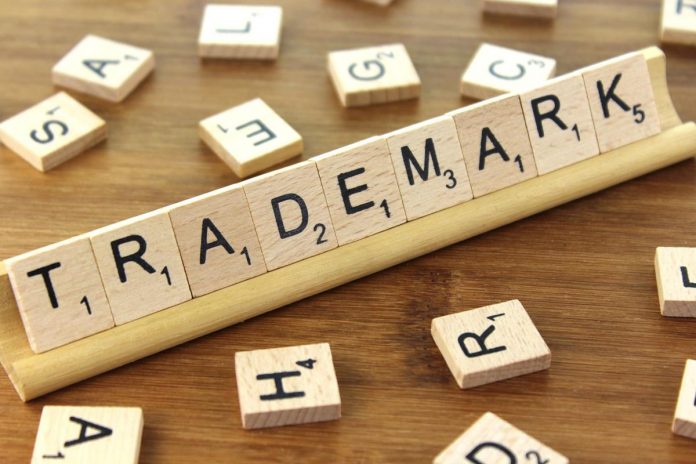This article is written by Anjali Singh pursuing a Diploma in Intellectual Property, Media and Entertainment Laws at Lawsikho. This article has been edited by Ojuswi (Associate, Lawsikho).
This article has been published by Sneha Mahawar.
Table of Contents
What is a trademark
A Trademark is a pivotal branch of intellectual property. There are different types of intellectual property such as Patents, Industrial Property, Trade Secrets, Copyright, and Geographical Indicators, Trademark is one amongst them. It is the unique identity of your product. Trademarks can be words, symbols, sounds, logos, a combination of colours, or even an identified smell. The Provisions related to Trademark are provided under the Trademarks Act, 1999.
Trademarks can also be utilized without registering a product. However, registering a product can have some far-reaching benefits which can be inferred from the provisions of the act itself.
In comparison to patents, trademarks are not that expensive and time-consuming. The limitation with trademarks, however, is that they cannot protect the whole article. The protection is limited to the symbol or logo of the product.
According to the World Intellectual Property Organisation’s (WIPO’s ) definition of a Trademark, it is a sign with the potential of distinguishing between the goods and services of different enterprises. It can also be a brand value. Trademarks can be acquired by an individual, business organization, or any legal entity. In India, provisions concerning the registration of trademarks are governed by The Trade Marks Act of 1999, The Trade Marks Rules of 2002, and The Trade Marks (Amendment) Rules of 2017.
Is it worth registering your trademark
What’s the point of having a distinctive idea if anyone can utilize the same for his/her advantage? The short answer to this question is yet another question “Do you want to become the king of your business?” If the answer is yes, then it is vital to register your trademark and protect it from any sort of misuse by a third party. There can be two ways of protecting your ideas, either you keep them to yourself and refrain from disclosing them, or take a more logical and practical step, that is, to protect them under intellectual property rights.
Once you register your trademark you acquire the right to sue, in case of an infringement.
Trademark registration
The registration process is on a first-to-file basis, so it should be registered at the earliest, as it can take up to 3 years to successfully register a trademark, in case of no hindrance by the third party. Chapter 3rd of the Trademarks Act, 1999 deals with the procedure for and duration of the trademark.
Selection of a trademark agent in India
If the Proprietors’ place of business is in India then only they are eligible to apply for trademark registration. If the situation is contrary then, an agent or attorney becomes the mediator to file the application on behalf of the right holder. The agent or attorney usually takes care of the trivialities into his hands.
Determination of an eligible trademark
A particular trademark qualifies the eligibility criteria if it doesn’t bear resemblance to any pre-registered trademark in the office of the comptroller general. One also needs to ensure that the trademark should be distinct. The agent usually starts the registration process by determining if the trademark is eligible for registration and conducting a clearance search to see if there is a similar mark in the office of the comptroller general.
Application form and filing completion
If the right holder grants the Power of Attorney to the agent, then he can fill out the application form consisting of the details that clarify the requisite elucidation regarding the goods and services in an association of the mark, details of the proprietor.
The application can be either filled offline (the trademark registry) or online. In case of an Online application: A Class III Digital Signature Certificate is required.
Review and allocation of a unique number by the trademark office
The officials of the trademark office review the application and then the application a distinct number, further, this number becomes the registration number, in case the trademark is registered.
Preliminary approval and publication
The trademark officials determine if the application is obstructed from registration either on absolute or relative grounds for refusal as per the rules laid down in the Trade Marks Act, 1999.
Objection to trademark registration
Sections 9 clauses (1-3) and section 11 deal with different categories under which objections can be raised in the registration process
Section 9 rejects a mark being registered if it’s deceptive with regard to the origin, nature, or quality of the concerned goods and services.
To counter the objection under this head the applicant has to come up with evidence that his/her mark is distinct from that of the other’s goods and services.
The objection under section 11 arises in case a similar trademark has already been registered or applied before the registry of trademark, the object after laying down this section is the protection of the rights of the other party.
After a successful scrutinization of the examiner, he has a right to object to the registration of the concerned mark. In this scenario “Objected” will become the status quo.
To counter the objection the applicant must either Contest that the mark is different from the conflicting mark. In this case, he must prove that his mark is non-identical from the conflicting mark and can definitely be distinguished as two separate marks or get a no objection document from the owner of the objectionable registered mark
They are different steps with regards to the registration process, and what happens in case of a deadlock. The applicant has to reply to the issued examination report within one month, Now the registrar after thoroughly surveying the examination report determines whether the same is accepted, rejected, or put forth for further review. In case of rejection, the applicant can appeal to the Intellectual Property Appellate Board within the time-bound period of 3 months of the issue of the rejection order from the registrar. The purpose behind the constitution of the Intellectual Property Appellate Board is towards hearing an appeal against the decisions of the registrar under the Trademarks Act, 1999 and the Geographical representation of Goods (Registration and Protection) Act, 1999, by a Gazette notification of the Central Government in the Ministry of Commerce and Industry on 15th September 2003.
Section 20 [Advertisement of application] comes into the picture, as per the provisions of the act when the registrar the mark will be published in the official gazette, The Trademark journal.
In case of no objections from the third party even after the publishing it on the journal, or the application has been opposed but the decision went in favour of the applicant, then as per section 23 of the act the trademark is registered and the Registrar shall issue to the applicant a certificate in the aforementioned form of the registration therein, protected with the seal of the Trade Marks Registry.
Section 21 of the Trade Marks Act, 1999 read along with The Trade Marks Rules, 2002, rules 42 to 47 deals with opposition to registration.
Once a trademark has been published in the Trademarks Journal, the opposition must be filed within a 4 months time frame. The same shall be filed with the Registry along with the payable fee.
Rule 42 deals with the notice of opposition and rule 43 concerns the particulars of the notice, Rule 45th, 46th, and 47th deal with the evidence concerning the applicant and opponent.
Remedies available in case of objection to trademark registration
The applicant can appeal in the IPBA if the registrar refuses to register the trademark, the appeal should be filed within 3 months from the date of refusal order. If the applicant is still discontented with the order passed by the IPAB he still has the alternative to file an appeal to the corresponding High Court. Further appeals can also be made to the Supreme Court of India.
Conclusion
After going through the whole procedure of registration of a trademark, it’s clear that it’s important/necessary registering your trademark as you can reap innumerable benefits in the form of Rights, and no third party can infringe your trademark or commercially exploit your product or services
Have you ever noticed an R with a circle or a TM mark on any product? There are several instances of the same, which we use daily. That symbol is evidence of a registered trademark. It is very intriguing to know that almost every product is a registered trademark. Especially the ones having a brand value, so don’t let anybody steal your ideas or creativity, register it!
References
- https://legislative.gov.in/sites/default/files/A1999-47_0.pdf
- https://ipindia.gov.in/Rules-trademark.htm
- https://www.mondaq.com/india/trademark/127680/trademarks-law-in-india-everything-you-must-know
Students of Lawsikho courses regularly produce writing assignments and work on practical exercises as a part of their coursework and develop themselves in real-life practical skills.
LawSikho has created a telegram group for exchanging legal knowledge, referrals, and various opportunities. You can click on this link and join:
Follow us on Instagram and subscribe to our YouTube channel for more amazing legal content.
 Serato DJ Crack 2025Serato DJ PRO Crack
Serato DJ Crack 2025Serato DJ PRO Crack











 Allow notifications
Allow notifications


